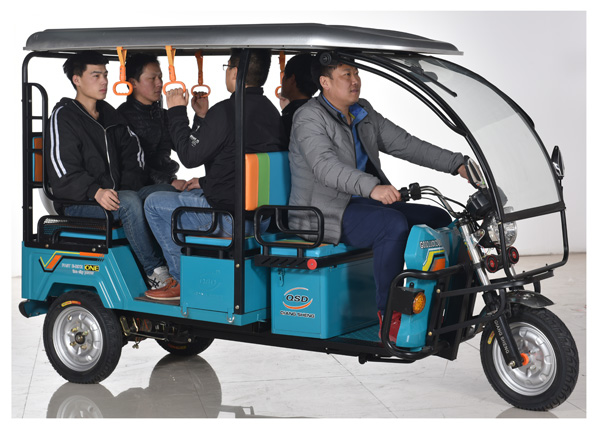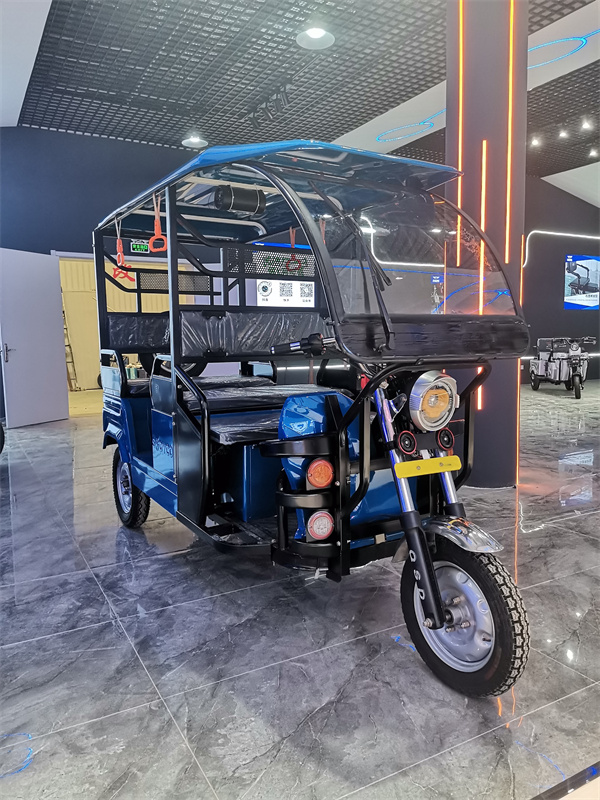Following the government’s decision to ban battery-powered rickshaws for a number of specific reasons, there is clearly a lack of preparation to rebuild these rickshaw drivers by creating alternative jobs. These rickshaw drivers have lost their only source of income, and the public is unhappy with the sudden implementation of seemingly sensible government moves. When images of law enforcement dumping these mechanized rickshaws began to appear in the national media, discontent increased and turned into outrage. This became yet another example of another government initiative that was poorly implemented and implemented, without any justification and without informing the public about the reasons for the decision. Their only source of livelihood was suddenly deprived, thousands of these low-income members of society were crushed and felt that the government and society did not spare them.

These rickshaw drivers are generally poor, these mechanized rickshaws are their only livelihood and several family members depend on them. Despite criticism of these rickshaws for their safety deficiencies and poor functionality, as well as several previous campaigns and attempts to ban them, the reality is that these vehicles are very popular, economical and widely used, especially around Dhaka and other major regional cities. cities and all regional cities. When the public and formal private sectors fail to provide alternative modes of transport for millions of rural Bangladeshis, these modes of transport become convenient alternative modes of transport for ordinary people. The government complied with this demand when the government working group on “Strengthening traffic order and combating traffic accidents” recommended a nationwide ban on rickshaws and battery-powered rickshaws, as well as other more important and critical proposals that are in fact still ignored. . Since other solutions are difficult to implement due to the resistance of powerful property classes, this solution is geared towards a rather soft target – poor auto rickshaws without the support or sympathy of the social elite.
In a country where it is still unknown how many buses, trucks, motorcycles, cars and other formal sector vehicles are on the streets, the actual number of battery-powered rickshaws and vans will never be known. However, the number of these so-called “fraudulent” rickshaws appears to be significant. The official government vehicle registration system has never been fully operational. In this country, vehicle registration, vehicle taxes, proof of fitness, driver’s license, etc. are implied, not mandatory, just like traffic lights and laws in a country that are too lazy to follow, including law enforcement officers. However, it is indeed quite difficult for the government, especially to track these locally assembled vehicles and put them under some kind of surveillance system, as there are few inspectors on the staff, and officials and regulators lack the capacity and will.
Battery-powered rickshaws and minibuses are assembled and modified locally and these vehicles are considered dangerous; many fatal accidents were caused by these vehicles colliding with other vehicles and hitting people. These vehicles do not have proper braking systems – only the front wheels have brakes. As a result, these vehicles often roll over due to uncontrolled speed when trying to stop.
Another argument against these unofficial rickshaws and vans is that they use lead-acid batteries. Also of concern is the amount of electricity used to charge these batteries, as well as the public health and environmental impacts of indiscriminate use, disposal and recycling of batteries. The lead acid batteries used to power these vehicles have adverse health effects and very little is known, documented or investigated for lead poisoning in Bangladesh. In order to understand battery issues and the impact of the government ban, several short and quick interviews were arranged with dozens of rickshaw drivers in the cities of Khoksha, Kushtia, Savar, Dhaka and Munshigonj to better understand the scope of the problem and how they think about solving and consequences.
Respondents drive a battery-powered rickshaw for about 5 years on average. Each car has 4 batteries. They bought these batteries from many places, not from any particular store or dealer, and the kit cost 44,000tk. After about 6 months, they returned the batteries with a refund of about 20,000 tk. These batteries have an average life of about 6 months and do not have to be returned to the same store where they were purchased. Rickshaw drivers are somewhat aware of the health hazards and toxic substances in their vehicles, but they claim to keep their children out of reach when they return home late at night when children are usually asleep. In addition, the batteries are charged outside of their primary residence, which reduces exposure to family members.
In answering this question, they answered “no” if they wanted to use a station to change batteries because they would lose flexibility when and where to charge because they are always on the move and cannot predict or control their travel plans or destination. As for taxes, they know they don’t pay taxes to the government; they also know that sellers/dealers are unlikely to pay taxes when they buy or sell. Most people are concerned about the quality of the batteries they use and suspect that these batteries are not officially manufactured. Where the battery went when it was returned, they claim they have no idea. However, they expressed their willingness to pay more for high-quality products – about 50,000 tk if it lasts at least a year. As for the extra electricity they take to charge these batteries, charging for 8 hours costs about 1500tk per night. When asked what they would do if battery cars were banned, they cited digging, fishing, day labor, farming, paddle rickshaw driving, and welding as alternative sources of livelihood.
It takes a huge effort to lift people out of poverty in this country, but alas, in an already highly segregated and hierarchical society, putting thousands of people back into poverty requires swift and sudden action. Can improved licensing arrangements for these vehicles, after the necessary structural changes, save so many jobs while further prospering the rural economy?
Published by Syed Manzoor Elahi for International Publications Limited, Tropicana Tower (4th floor), 45, Topkhana Road, GPO Box: 2526 Dhaka-1000, printed by him at City Publishing House Ltd., 1 RK Mission Road, Dhaka-1000.
Post time: Sep-09-2022


